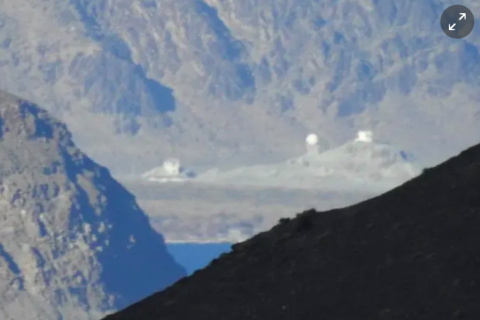5 October 2021
La zone pastorale de la vallée de la Nouaho, dans la région du Centre-Est, a été créée pour assurer une sécurité foncière aux éleveurs et intensifier leurs systèmes de productions animales. Mais, de nos jours, elle est « infestée » par l’orpaillage dont l’ampleur préoccupe.
12 September 2021
River Rwizi is located in Ankole Sub-region, western Uganda. River Rwizi, which covers approximately 8,200km, is the source of water for livelihood to both people and animals in Rakai, Lyantonde, Isingiro, Lwengo, Kiruhura, Mbarara, Bushenyi, Buhweju, Sheema and Rubirizi.
The river is served by
11 September 2021
A Quarter of the world’s 4.4 billion hectares (10.9 million acres) of cropland is degraded, often due to drying, according to the UN’s Food and Agriculture Organisation (FAO). Just over a hectare and a half, or 4 acres, of that dried-out land have for years been located at Benedict-
pound) bags of
16 June 2021
Main photo: Farmers at a FAO anti-desertification project in Burkina Faso, one of 11 countries targeted by the Global Environment Fund Initiative
The global launch of a $104 million initiative signals an ambitious effort by a range of partners to safeguard drylands in the context of climate
3 April 2021
Dzuds, a weather phenomenon characterized by extreme cold, used to be unusual. Now, they’re becoming the new normal.
DALANZADGAD, UMNUGOVI PROVINCE, MONGOLIA — Clouds gather in the moody winter sky, and the wind picks up. As the temperature plummets, sheep and goats turn from the pasture where
20 February 2021
Main photo: A herder collects snow to be melted down into drinking water.
The dzud is a peculiar weather phenomenon unique to Mongolia in which every few years a summer drought combines with a harsh winter. Nomadic herders can only despair as piles of dead, frozen sheep and goats stack up across
14 December 2020
All in all, despite COVID-19, the WOLTS team have had a highly productive year. In 2020 we've been adapting, taking stock, writing blogs, and concluding our pilot 'gender and land champions' training programme in Mongolia and Tanzania.
10 November 2020
UNDP-supported project to benefit close to one million vulnerable people in a nation where climate change is threatening natural resources and fragile ecosystems
22 October 2020
Main photo: The yak (Bos grunniens and Bos mutus) is a long-haired bovid found throughout the Himalaya region of south Central Asia, the Tibetan Plateau and as far north as Mongolia and Russia. (Used under Creative Commons license) Flickr/Arian Zwegers
An innovative community-based forest
5 August 2020
CALL FOR INDIVIDUALS AND/OR ORGANISATIONS INTERESTED IN COORDINATING ILC’S GLOBAL WORK ON RANGELANDS AND MOBILITY
DEADLINE 15 AUGUST 2020
TERMS OF REFERENCE
We are launching this call to mainstream ILC’s commitment in support of pastoralists, mobility and security of rangelands for land
21 July 2020
‘WOLTS Team Perspectives’ is a new series of blogs launched in February 2020 by the global WOLTS team. In this series, field team members share their views about the impacts of the project’s action-research on gender, land and mining among pastoralist communities in Tanzania and Mongolia.
3 July 2020
Namgyal Durbuk knows the steep mountainous terrain of Ladakh like the back of his hand. But in the 45 years he has lived here, along the Indian state’s volatile and poorly defined border with neighbouring China, he has watched Indian land disappear before his eyes.











